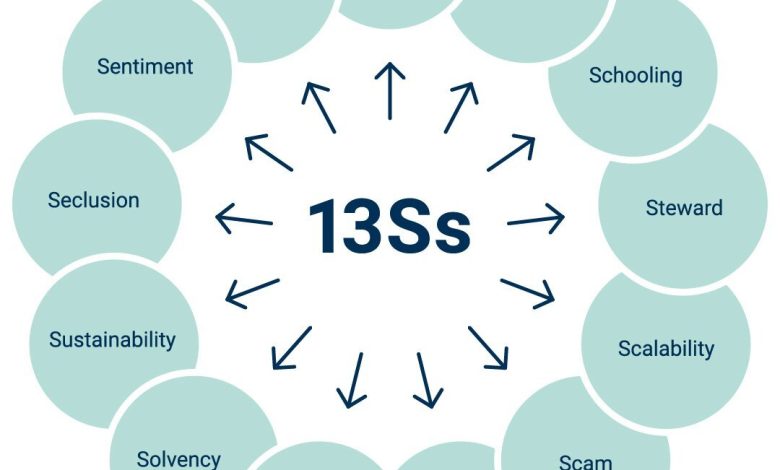How to Assess the Security of a Cryptocurrency

- Understanding the Basics of Cryptocurrency Security
- Key Factors to Consider When Evaluating Cryptocurrency Security
- Common Security Risks in the Cryptocurrency Space
- Best Practices for Securing Your Cryptocurrency Holdings
- Tools and Resources for Assessing Cryptocurrency Security
- The Future of Cryptocurrency Security: Trends and Developments
Understanding the Basics of Cryptocurrency Security
Cryptocurrency security is a crucial aspect to consider when evaluating the safety of a digital asset. Understanding the basics of cryptocurrency security can help investors make informed decisions about which cryptocurrencies to invest in. Here are some key points to keep in mind:
- Private keys: Private keys are essential for accessing and managing cryptocurrency holdings. It is important to keep private keys secure and never share them with anyone.
- Wallet security: Choosing a secure wallet is vital for protecting your cryptocurrency. Hardware wallets are considered one of the safest options available.
- Two-factor authentication: Enabling two-factor authentication adds an extra layer of security to your cryptocurrency accounts, making it harder for hackers to gain access.
- Regular updates: Keeping your cryptocurrency software up to date is crucial for protecting against security vulnerabilities and potential attacks.
- Research: Before investing in a cryptocurrency, it is essential to research the project, team, and security measures in place to protect investors’ funds.
By understanding these basics of cryptocurrency security, investors can mitigate risks and safeguard their investments in the volatile world of cryptocurrencies.
Key Factors to Consider When Evaluating Cryptocurrency Security
When evaluating the security of a cryptocurrency, there are several key factors to consider to ensure that your investments are protected. One important aspect to look at is the encryption technology used by the cryptocurrency. **Encryption** plays a crucial role in securing transactions and **protecting** user data from **cyber** threats. It is essential to **verify** that the cryptocurrency **employs** robust encryption methods to safeguard your assets.
Another factor to consider is the **security** of the **network** on which the cryptocurrency operates. A **decentralized** network with a **strong** **consensus** mechanism, such as **proof** of work or **proof** of stake, can **help** prevent **attacks** and **ensure** the integrity of the **blockchain**. Additionally, regular **security** audits and **updates** to the **protocol** can **help** **mitigate** potential vulnerabilities.
It is also important to **evaluate** the **security** of the **wallet** where you store your **cryptocurrency**. **Hardware** wallets are generally considered more secure than **online** wallets, as they are **offline** devices that are **less** susceptible to **hacks** and **cyber** **attacks**. **Multi**-signature **wallets** and **cold** storage solutions can also **add** an extra layer of **protection** to your **assets**.
Furthermore, **consider** the **reputation** and **track** record of the **cryptocurrency** **exchange** where you **purchase** or trade **digital** assets. **Choose** **platforms** that have a **history** of **security** and **transparency**, and **implement** **strong** **security** measures such as **two**-factor **authentication** and **cold** storage for **customer** funds.
By **taking** these **factors** into **account** and **conducting** **thorough** **research**, you can **make** **informed** decisions about the **security** of a **cryptocurrency** and **protect** your **investments** from **potential** **threats**.
Common Security Risks in the Cryptocurrency Space
When it comes to assessing the security of a cryptocurrency, it is crucial to be aware of the common security risks that exist in the cryptocurrency space. By understanding these risks, investors and users can take the necessary precautions to protect their assets and information.
- One of the most prevalent security risks in the cryptocurrency space is hacking. Hackers are constantly looking for vulnerabilities in cryptocurrency exchanges, wallets, and other platforms to steal funds. It is essential to use secure platforms and practices to minimize the risk of hacking.
- Another common security risk is phishing attacks. Phishing attacks involve tricking individuals into revealing their private keys or login information through fraudulent emails or websites. Users should always be cautious of unsolicited emails and verify the authenticity of websites before entering sensitive information.
- Malware is also a significant security risk in the cryptocurrency space. Malicious software can infect devices and steal cryptocurrency funds or private keys. It is essential to use reputable antivirus software and avoid downloading files or clicking on links from unknown sources.
- Social engineering attacks are another threat to cryptocurrency security. These attacks involve manipulating individuals into revealing sensitive information or transferring funds. Users should be wary of unsolicited requests for information or funds and verify the identity of the sender before taking any action.
- Lastly, smart contract vulnerabilities pose a risk to users of decentralized applications (dApps) built on blockchain platforms. Flaws in smart contracts can lead to the loss of funds or exploitation by malicious actors. Users should thoroughly audit smart contracts before interacting with them to mitigate this risk.
Best Practices for Securing Your Cryptocurrency Holdings
When it comes to securing your cryptocurrency holdings, there are several best practices that you should follow to ensure the safety of your investments. Here are some key tips to help you protect your digital assets:
- Use a hardware wallet: Storing your cryptocurrency in a hardware wallet is one of the most secure methods available. These wallets are offline devices that are not connected to the internet, making them less vulnerable to hacking.
- Enable two-factor authentication: Adding an extra layer of security to your accounts by enabling two-factor authentication can help prevent unauthorized access.
- Keep your private keys secure: Your private keys are essentially the keys to your cryptocurrency kingdom. Make sure to store them in a safe place and never share them with anyone.
- Regularly update your software: Keeping your wallet and any other cryptocurrency-related software up to date is crucial for staying protected against security vulnerabilities.
- Avoid public Wi-Fi: When accessing your cryptocurrency accounts, try to avoid using public Wi-Fi networks, as they can be more easily compromised.
By following these best practices, you can help ensure that your cryptocurrency holdings remain safe and secure. Remember, the cryptocurrency market can be volatile, so it’s important to take the necessary precautions to protect your investments.
Tools and Resources for Assessing Cryptocurrency Security
When it comes to assessing the security of a cryptocurrency, there are several tools and resources available to help investors make informed decisions. These tools can provide valuable insights into the security measures implemented by a particular cryptocurrency, helping users determine the level of risk associated with investing in it.
One of the most commonly used tools for assessing cryptocurrency security is a security audit. Security audits are conducted by independent third-party firms that specialize in evaluating the security of blockchain projects. These audits typically involve a thorough review of the cryptocurrency’s codebase, looking for vulnerabilities and weaknesses that could be exploited by malicious actors.
Another valuable resource for assessing cryptocurrency security is a security score. Security scores are numerical ratings assigned to cryptocurrencies based on their security features and practices. These scores can help investors quickly assess the relative security of different cryptocurrencies and make more informed investment decisions.
Additionally, there are online platforms that provide real-time monitoring of cryptocurrency security threats. These platforms track security incidents and vulnerabilities across various cryptocurrencies, helping users stay informed about potential risks and take proactive measures to protect their investments.
Overall, utilizing these tools and resources can help investors assess the security of a cryptocurrency more effectively and make better-informed investment decisions. By staying informed about security risks and vulnerabilities, investors can mitigate potential threats and protect their assets in the volatile world of cryptocurrency.
The Future of Cryptocurrency Security: Trends and Developments
The future of cryptocurrency security is constantly evolving as new trends and developments emerge in the industry. One key trend to watch out for is the rise of decentralized exchanges, which offer increased security by eliminating the need for a central authority to hold users’ funds. This shift towards decentralization is expected to make it harder for hackers to target specific points of weakness in the system.
Another important development in cryptocurrency security is the increasing use of multi-signature wallets, which require multiple private keys to authorize a transaction. This added layer of security makes it more difficult for unauthorized users to access funds, providing peace of mind for investors and users alike.
Additionally, advancements in encryption technology are helping to bolster the security of cryptocurrencies. By using advanced cryptographic techniques, developers are able to create more secure networks that are resistant to hacking attempts. This increased focus on encryption is expected to make cryptocurrencies even more secure in the future.
Overall, the future of cryptocurrency security looks promising as developers continue to innovate and implement new technologies to protect users’ funds. By staying informed about the latest trends and developments in the industry, investors can make more informed decisions about which cryptocurrencies to invest in and how to keep their funds secure.



